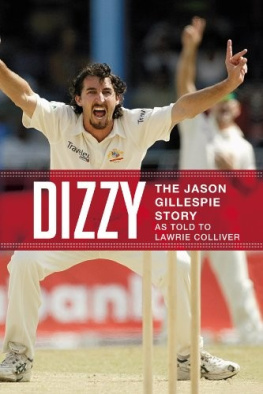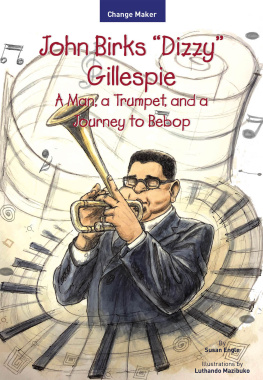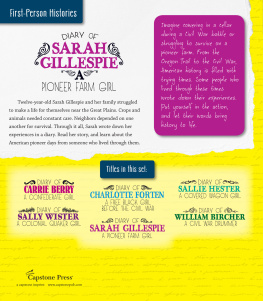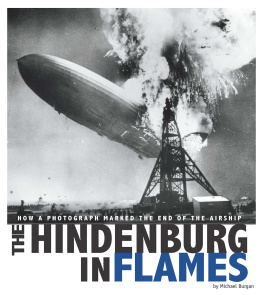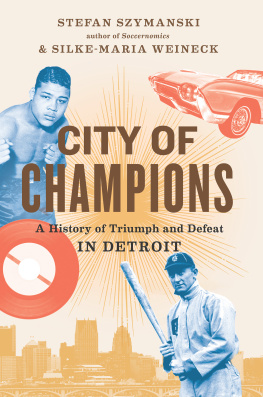Michael Russell - The City in Flames (Stefan Gillespie Book 5)
Here you can read online Michael Russell - The City in Flames (Stefan Gillespie Book 5) full text of the book (entire story) in english for free. Download pdf and epub, get meaning, cover and reviews about this ebook. year: 2019, publisher: Little, Brown Book Group, genre: Detective and thriller. Description of the work, (preface) as well as reviews are available. Best literature library LitArk.com created for fans of good reading and offers a wide selection of genres:
Romance novel
Science fiction
Adventure
Detective
Science
History
Home and family
Prose
Art
Politics
Computer
Non-fiction
Religion
Business
Children
Humor
Choose a favorite category and find really read worthwhile books. Enjoy immersion in the world of imagination, feel the emotions of the characters or learn something new for yourself, make an fascinating discovery.

- Book:The City in Flames (Stefan Gillespie Book 5)
- Author:
- Publisher:Little, Brown Book Group
- Genre:
- Year:2019
- Rating:5 / 5
- Favourites:Add to favourites
- Your mark:
- 100
- 1
- 2
- 3
- 4
- 5
The City in Flames (Stefan Gillespie Book 5): summary, description and annotation
We offer to read an annotation, description, summary or preface (depends on what the author of the book "The City in Flames (Stefan Gillespie Book 5)" wrote himself). If you haven't found the necessary information about the book — write in the comments, we will try to find it.
The City in Flames (Stefan Gillespie Book 5) — read online for free the complete book (whole text) full work
Below is the text of the book, divided by pages. System saving the place of the last page read, allows you to conveniently read the book "The City in Flames (Stefan Gillespie Book 5)" online for free, without having to search again every time where you left off. Put a bookmark, and you can go to the page where you finished reading at any time.
Font size:
Interval:
Bookmark:
The City of Shadows
The City of Strangers
The City in Darkness
The City of Lies
Published by Constable
ISBN: 978-1-47213-033-4
All characters and events in this publication, other than those clearly in the public domain, are fictitious and any resemblance to real persons, living or dead, is purely coincidental.
Copyright Michael Russell, 2019
The moral right of the author has been asserted.
All rights reserved. No part of this publication may be reproduced, stored in a retrieval system, or transmitted, in any form or by any means, without the prior permission in writing of the publisher.
The publisher is not responsible for websites (or their content) that are not owned by the publisher.
Constable
Little, Brown Book Group
Carmelite House
50 Victoria Embankment
London EC4Y 0DZ
www.littlebrown.co.uk
www.hachette.co.uk
For my uncle,
Edward Constantine Miall,
Newry, Armagh, 1929
You have asked me why I stay in this small country
Where nothing happens while perhaps the last chapter,
Europes swan song, is being written in the chancelleries.
You picture me tramping the Wicklow Hills and among trees
Without the stagnating waiting for air-raids and war nerves
Letter from Ireland
Ewart Milne
I n the autumn of 1940, Nazi Germany occupied almost all of Europe and seemed invincible. Britain was the only country still resisting. But Hitler had suffered his first defeat, in the air war of the Battle of Britain. Though British cities, London especially, were bombed nightly, the imminent German invasion had been called off. Across the Irish Sea, Ireland had chosen to stay out of the war. Its Prime Minister, amon de Valera, maintained an intransigent neutrality. The reasons were many, but one was his certainty that if Ireland joined Britain the inevitable presence of British troops, barely twenty years after the War of Independence, would provoke civil war and revitalise the then weak Irish Republican Army, which still claimed to be Irelands legitimate government and considered de Valera a traitor. But Irelands neutrality was always odd. De Valeras belligerent even-handedness masked increasing trade with Britain and, secretly, high levels of cooperation between British and Irish Intelligence services. The Irish government expressed disapproval of its citizens joining the British armed forces but did nothing to stop them. By 1945 at least 50,000 Irish would leave to join up. Travel between the two countries was surprisingly easy, and as many as 250,000 Irish would emigrate to Britain between 1939 and 1945. They became indispensable to Britains war industry as more and more workers were called up.
In Germany and Britain Irish neutrality was viewed in different ways. In Berlin it was seen as a huge blow to the British. When Britain was invaded, it was thought, Ireland would not only become a base for rearguard attacks, the Irish government would reveal its true support for Germany and join in. The Germans seemed blind to the fact that de Valeras hostility to England did not translate into any kind of enthusiasm for Nazi Germany. There were Germans who wanted to use Ireland more effectively, however. By supplying arms to the IRA, they aimed at mounting sabotage operations against the British and even starting an uprising in Northern Ireland that might drag de Valera into the war on Germanys side. The IRA, believing that Englands difficulty was Irelands opportunity, as always, awaited German help and German victory. Britain regarded Irelands neutrality with a grudging acceptance, but some felt it was a betrayal that could not be tolerated. In 1940 Winston Churchill came close to agreeing to the invasion of Ireland. The Irish government had very good reason to believe that both the British and the Germans were preparing plans to invade the country. And there were people who wanted to put those plans into operation one way or another.
I am directed by the Minister for External Affairs to refer to your minutes of the 19 and 30 September, relating to the measures which would have to be taken by the Government in the event of either belligerent making an attack on this country. The first task of this Department, on the occurrence of such an emergency, would be to make a protest to the Government of the country concerned and to inform the Governments of neutral countries, especially that of the United States, that Irish neutrality had been violated. The Government of the other belligerent Power would also be informed, and if our Government so decides, would be requested for aid against the invader.
Letter from Joseph Walshe,
Secretary Department of External Affairs, October 1940
Wicklow, 1921
D avid Gillespie felt the hard stone of the floor first, and it was all he felt. The stone flag was cold, and for a moment that coldness was a kind of comfort against his cheek. He didnt know why it seemed a place to stay in, but it was somehow soothing; it held the weight of his head, as if it was fixed. He couldnt move and he didnt want to. For some seconds that was all he was aware of: a dark, enfolding dream he was struggling not to wake from. Then the pain shot through his jaw, sharp, hot, and he pushed himself up. He opened his eyes and saw only a blur of yellow light. He tasted vomit in his mouth and the iron tang of blood. He had been unconscious for barely a minute. Now, as he sat up on the stone floor, he knew where he was again. The blow had come from a rifle butt. It followed a series of punches to his stomach and face. They had got heavier as the tempers of his interrogators had turned from amusement to anger.
Davie, am I getting through to you yet, you fucker?
In Davids eyes the blurred light sharpened then diminished. It was an oil lamp, sitting on a table above him. Over it was the face of the man who had just spoken, round and red, sweating. David stared up, unmoving, trying to focus. He saw the sweat more clearly than he saw the face. It was glinting in the light.
Get him up. The voice was Scottish, maybe Glasgow. It was an odd thought, but David had tried to identify where the interrogator came from since the start, where they all came from. He had Scotland; London for another; then Leeds, Yorkshire anyway. It was a way to harden his mind, to distance himself from what was happening. He had to ride this out until they got fed up with it.
The man turned to the table. He picked up a bottle and drank.
Hands clutched David on either side and pulled him up, dragging him backwards and pushing him down on a chair. The pain pierced him again, from his jaw upwards, into his head, stabbing, sawing. There were two uniformed men standing on either side of him. A fourth sat on a chair close by, smoking a cigarette, the rifle that had smashed into Davids face lying across his lap. Four Black and Tans. There had been more at the start. They all wore, in various combinations, the black and brown tunics and trousers that gave them their name. There was silence in the room now. The man who had spoken bent to take bottles of beer from a crate on the floor. He walked a slow circle, handing them to the other Black and Tans. It was a lull anyway; the anger was on hold. None of them looked at him. They didnt speak to each other; they just drank. Only minutes ago the room was full of their fury, full of blows, full of shouting.
David Gillespie reoriented himself to the room. Several oil lamps lit it, but it was big and high. There was darkness above; the light around him and his interrogators disappeared into black corners. It smelled of dust and stone and stale urine. It was empty apart from a scattering of old and new debris: broken, wood-wormed benches and pieces of rusting iron that had once belonged to bedsteads; bottles and tin cans made up the midden of the present occupants. Although he had never been in this place before, he did know it. The Black and Tans had brought him from the square in Baltinglass, out of the town, to the derelict Workhouse where they were barracked. And at the back of the Workhouse was the Fever Hospital, set apart from the other buildings so that the weak and emaciated inmates of the Workhouse could be taken away to die, not so long ago, when cholera and typhus beat their way into the overcrowding and the filth. Then it had been evidence that even amidst the most carefully structured degradation and misery, things could still get worse. But if that brutality had gone, another now replaced it: the brutality of war. David Gillespie had not anticipated what would happen that night. He knew he should have done. He had fled that brutality before; he had believed it was all he needed to do. He had ignored how arbitrary it was, how capricious. He sat in the Fever Hospital now, watching the Black and Tans drink. He knew it wasnt over. The man who had spoken turned back to him, still sweating, smiling.
Font size:
Interval:
Bookmark:
Similar books «The City in Flames (Stefan Gillespie Book 5)»
Look at similar books to The City in Flames (Stefan Gillespie Book 5). We have selected literature similar in name and meaning in the hope of providing readers with more options to find new, interesting, not yet read works.
Discussion, reviews of the book The City in Flames (Stefan Gillespie Book 5) and just readers' own opinions. Leave your comments, write what you think about the work, its meaning or the main characters. Specify what exactly you liked and what you didn't like, and why you think so.

